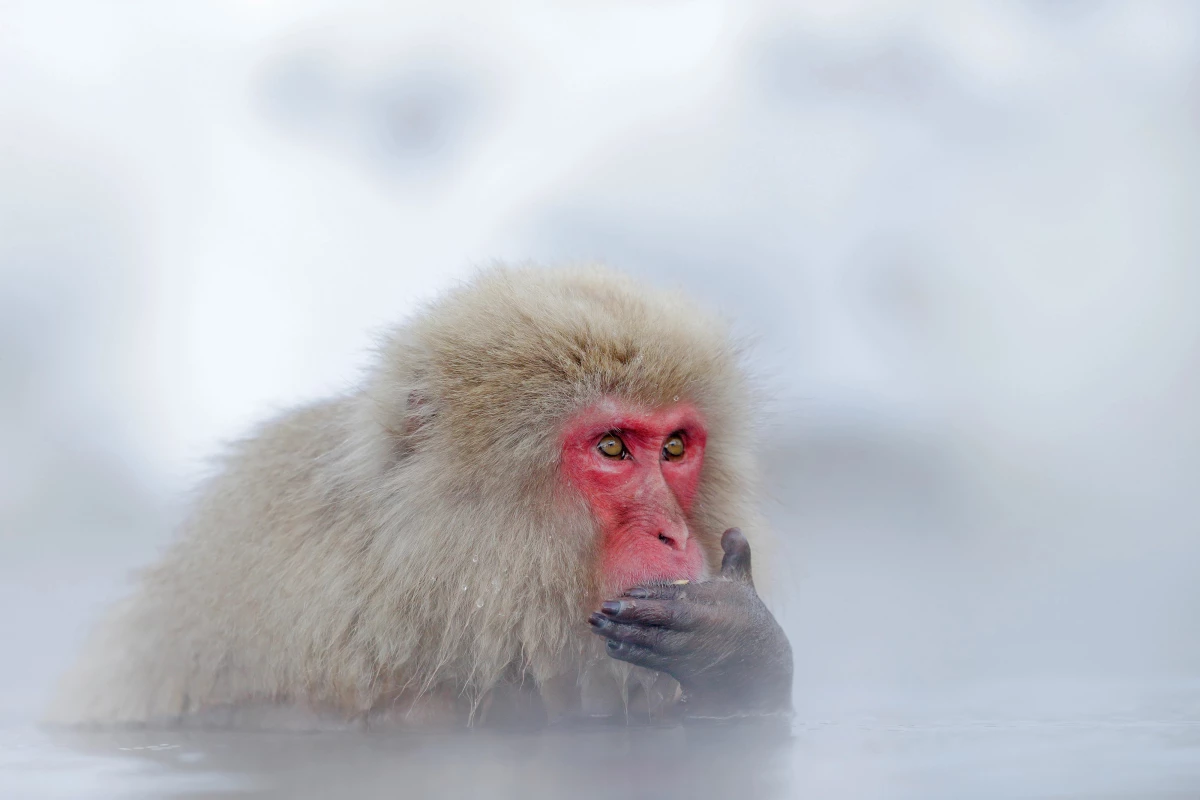Science
Study Reveals Cold-Climate Origins of Primates, Shifting Paradigms

A recent study has profoundly altered the understanding of primate origins, tracing their evolutionary history back 66 million years. Researchers from the University of Reading have utilized advanced statistical and climate modeling techniques to challenge the long-held belief that primates evolved in warm, tropical forests. Instead, they suggest that early primates were resilient survivors in cold climates.
The research examined a comprehensive dataset of 479 primate species, including 178 extinct species identified through fossils, and 301 living species. This extensive analysis aimed to track changes in species richness, climate tolerance, and geographic range over time throughout the evolutionary branches of primates, spanning regions like North America, Europe, and Asia.
To challenge the prevailing “warm tropical forest” hypothesis, the researchers meticulously reconstructed evolutionary relationships between species while mapping their geographic locations and climate conditions. This process required an extensive timeline of approximately 66 million years and involved integrating genomic and fossil data across hundreds of primate species. The team referenced an existing “supertree” of primate relationships, which included both extinct and extant species, to provide a detailed framework for their study.
Through the application of Bayesian biogeographic modeling, the researchers calculated the probability of various ancestral states, including primate locations and the climate zones during different periods. They adjusted their findings for factors such as continental drift and plate tectonics, employing the Köppen–Geiger climate classification to categorize climate types based on temperature and rainfall patterns.
The resulting climate atlas offered a clearer image of primate origins and migration patterns. The findings indicated that some of the earliest primate ancestors likely endured extreme seasonal variations, characterized by hot summers and icy winters. This adaptability suggests that these early primates possessed a broad, generalist diet, enabling them to thrive in harsh environments.
According to lead author Jorge Avaria-Llautureo, the research flips the narrative of primate evolution entirely. “For decades, the idea that primates evolved in warm, tropical forests has gone unquestioned,” he stated. “Our findings flip that narrative entirely. It turns out primates didn’t emerge from lush jungles – they came from cold, seasonal environments in the Northern Hemisphere.”
The study posits that early primates capable of surviving harsh conditions and venturing beyond localized climates developed the biological fitness necessary for reproduction and expansion. As climates shifted over millions of years, those primates that adapted well were able to migrate into new regions, leading to increased diversification.
Interestingly, the research also suggests that early primates may have employed hibernation strategies similar to modern bears, slowing their heart rate and conserving energy during the coldest months. Some smaller primate species, such as the dwarf lemurs from Madagascar, still exhibit hibernation behaviors, which have contributed to their survival in challenging environments.
As current primate species face significant environmental challenges, understanding the adaptations of their ancient ancestors can provide valuable insights for conservation efforts. Avaria-Llautureo emphasizes this relevance, stating, “Understanding how ancient primates survived climate change helps us think about how living species might respond to modern climate change and environmental changes.”
The comprehensive findings of this research have been published in the journal Proceedings of the National Academy of Sciences, marking a significant contribution to the field of evolutionary biology and the ongoing discourse surrounding primate origins.
-

 Lifestyle5 months ago
Lifestyle5 months agoLibraries Challenge Rising E-Book Costs Amid Growing Demand
-

 Sports4 months ago
Sports4 months agoTyreek Hill Responds to Tua Tagovailoa’s Comments on Team Dynamics
-

 Sports4 months ago
Sports4 months agoLiverpool Secures Agreement to Sign Young Striker Will Wright
-

 Lifestyle4 months ago
Lifestyle4 months agoSave Your Split Tomatoes: Expert Tips for Gardeners
-

 Lifestyle4 months ago
Lifestyle4 months agoPrincess Beatrice’s Daughter Athena Joins Siblings at London Parade
-

 Science4 months ago
Science4 months agoSan Francisco Hosts Unique Contest to Identify “Performative Males”
-

 World4 months ago
World4 months agoWinter Storms Lash New South Wales with Snow, Flood Risks
-

 Science5 months ago
Science5 months agoTrump Administration Moves to Repeal Key Climate Regulation
-

 Business5 months ago
Business5 months agoSoFi Technologies Shares Slip 2% Following Insider Stock Sale
-

 Science5 months ago
Science5 months agoNew Tool Reveals Link Between Horse Coat Condition and Parasites
-

 Sports5 months ago
Sports5 months agoElon Musk Sculpture Travels From Utah to Yosemite National Park
-

 Science5 months ago
Science5 months agoNew Study Confirms Humans Transported Stonehenge Bluestones









